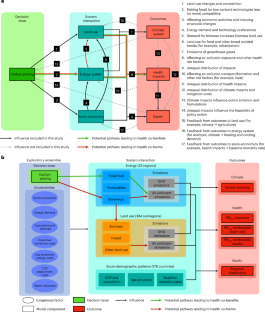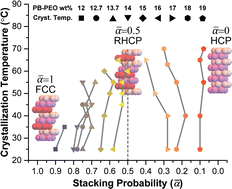2023-05-18 ペンシルベニア州立大学(PennState)
◆彼らの研究によれば、化石燃料の削減がバイオエネルギー資源の栽培に大規模な土地利用変化を必要とするシナリオでは、ロシアやカナダなどの一部の地域で森林破壊が進み、大気の質が悪化する可能性がある。したがって、これらの地域の大気の質が悪化することで、呼吸器疾患や心血管疾患が増え、早期死亡が増加する可能性がある。
◆この研究では、様々な変数をサンプリングして広範な未来のシナリオを理解するための探索的アンサンブルアプローチを使用して結果を得た。将来のシナリオにおける健康への潜在的な影響の確率は不明だが、彼らの研究結果は気候変動緩和の予期せぬ結果の可能性を示している。今後の課題として、研究者たちはさらに細かい地理的な解像度での影響を評価する予定である。
<関連情報>
- https://www.psu.edu/news/engineering/story/new-study-reveals-possible-future-health-impacts-related-climate-mitigation/
- https://www.nature.com/articles/s41893-023-01133-5
地球規模の気候緩和が地域の大気質と健康に及ぼす影響 Effects of global climate mitigation on regional air quality and health
Xinyuan Huang,Vivek Srikrishnan,Jonathan Lamontagne,Klaus Keller & Wei Peng
Nature Sustainability Published:18 May 2023
DOI:https://doi.org/10.1038/s41893-023-01133-5

Abstract
Climate mitigation can bring air quality and health co-benefits. How these health impacts might be distributed across countries remains unclear. Here we use a coupled climate–energy–health model to assess the country-varying health effects of a global carbon price across nearly 30,000 future states of the world (SOWs). As a carbon price lowers fossil fuel use, our analysis suggests consistent reductions in ambient fine particulate matter (PM2.5) levels and associated mortality risks in countries that currently suffer most from air pollution. For a few less-polluted countries, however, a carbon price can increase the mortality risks under some of the considered SOWs due to emissions increases from bioenergy use and land-use changes. These potential health co-harms are largely driven in our model by the scale and method of deforestation. A robust and quantitative understanding of these distributional outcomes requires improved representations of relevant deep uncertainties, country-specific characteristics and cross-sector interactions.



